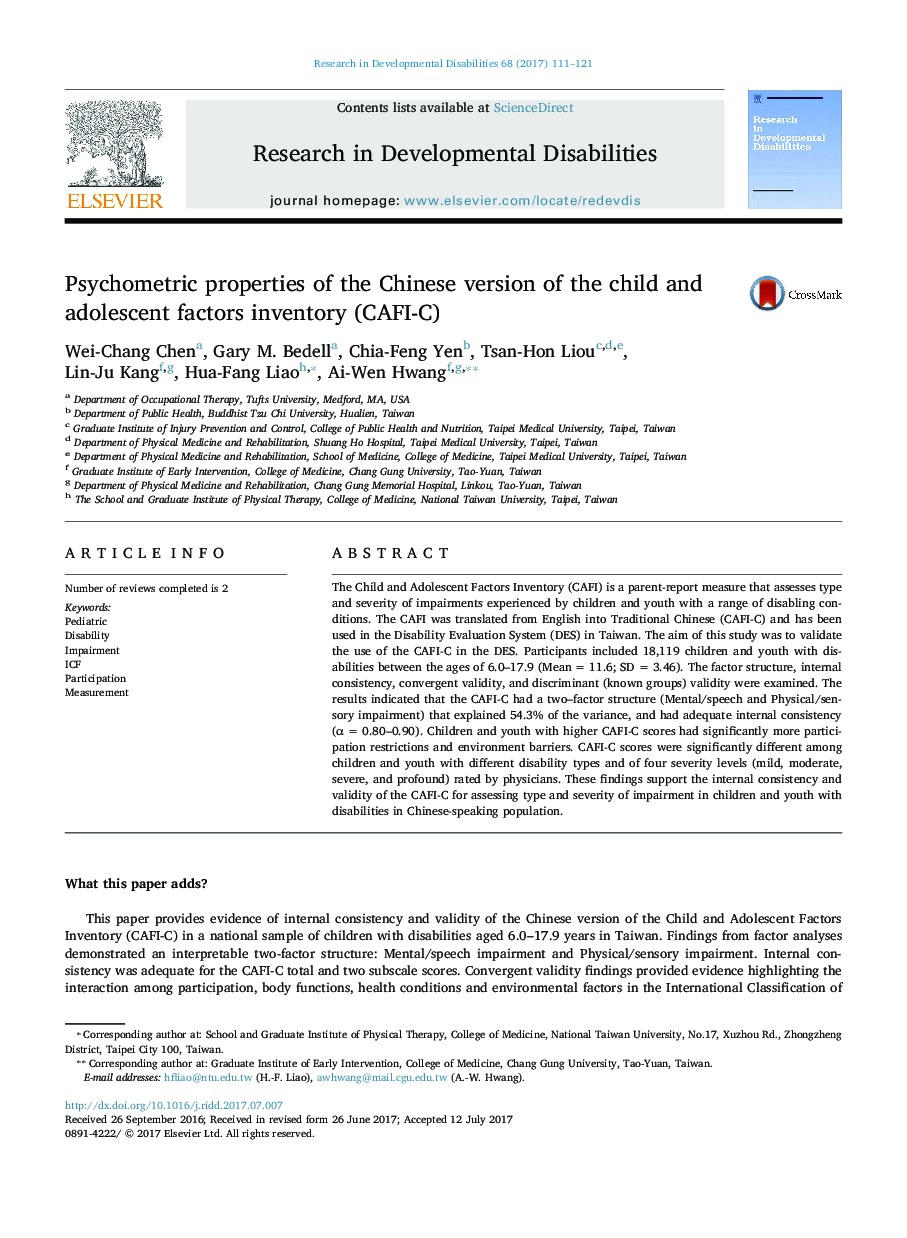| Article ID | Journal | Published Year | Pages | File Type |
|---|---|---|---|---|
| 4941082 | Research in Developmental Disabilities | 2017 | 11 Pages |
Abstract
The Child and Adolescent Factors Inventory (CAFI) is a parent-report measure that assesses type and severity of impairments experienced by children and youth with a range of disabling conditions. The CAFI was translated from English into Traditional Chinese (CAFI-C) and has been used in the Disability Evaluation System (DES) in Taiwan. The aim of this study was to validate the use of the CAFI-C in the DES. Participants included 18,119 children and youth with disabilities between the ages of 6.0-17.9 (Mean = 11.6; SD = 3.46). The factor structure, internal consistency, convergent validity, and discriminant (known groups) validity were examined. The results indicated that the CAFI-C had a two-factor structure (Mental/speech and Physical/sensory impairment) that explained 54.3% of the variance, and had adequate internal consistency (α = 0.80-0.90). Children and youth with higher CAFI-C scores had significantly more participation restrictions and environment barriers. CAFI-C scores were significantly different among children and youth with different disability types and of four severity levels (mild, moderate, severe, and profound) rated by physicians. These findings support the internal consistency and validity of the CAFI-C for assessing type and severity of impairment in children and youth with disabilities in Chinese-speaking population.
Related Topics
Life Sciences
Neuroscience
Behavioral Neuroscience
Authors
Wei-Chang Chen, Gary M. Bedell, Chia-Feng Yen, Tsan-Hon Liou, Lin-Ju Kang, Hua-Fang Liao, Ai-Wen Hwang,
